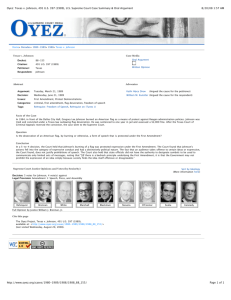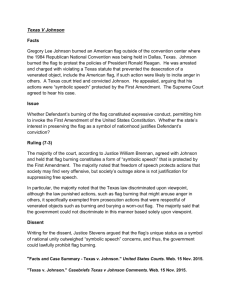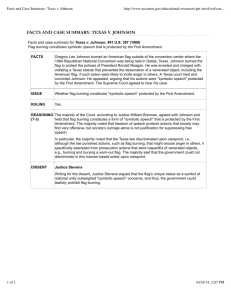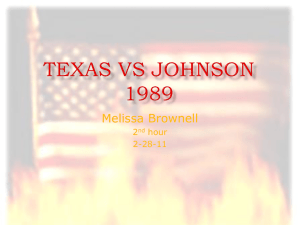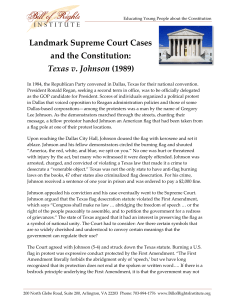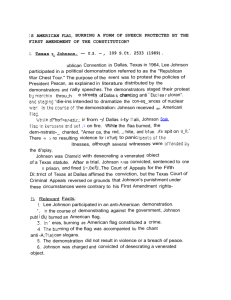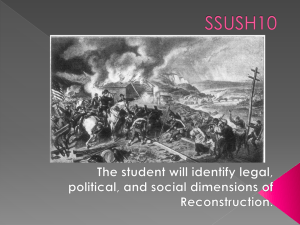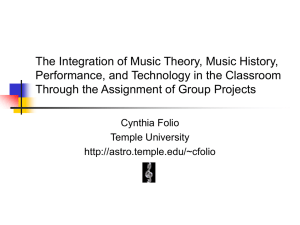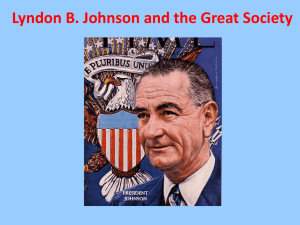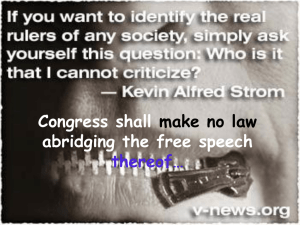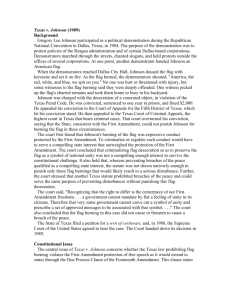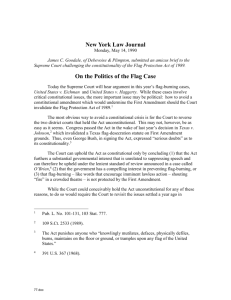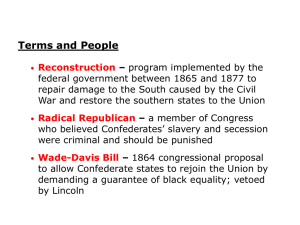Texas v. Johnson
advertisement
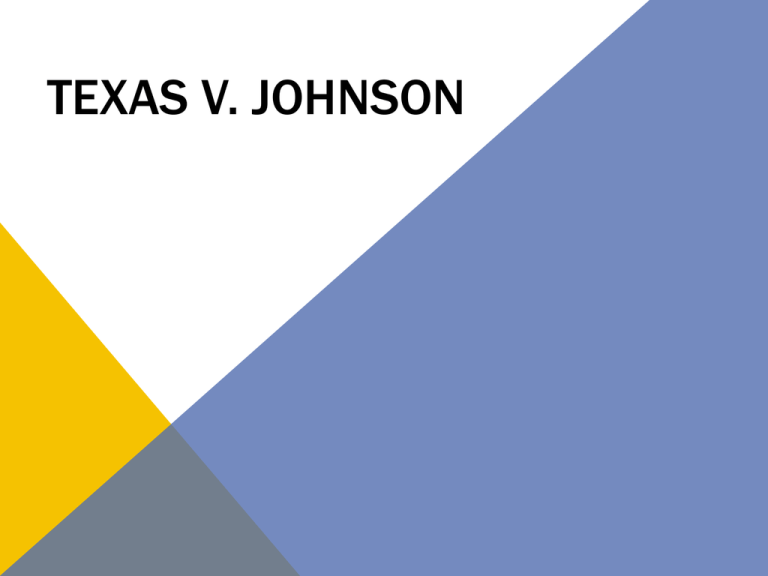
TEXAS V. JOHNSON WHAT HAPPENED • 1984 • Gregory Lee Johnson was a member of the Revolutionary Communist Youth Brigade • At a rally he burned the American flag as a sign of protest to then President Ronald Regan and his policies towards communists • This burning violated a statute in Texas that prevents anyone from vandalizing respected objects • Johnson was arrested and convicted THE COURTS • The original sentencing for Johnson was a one year prison term and a fine of $2,000 • Johnson felt that his conviction was violating the first amendment and that he felt it was “symbolic speech”. • Johnson appealed his conviction to the Fifth Court of Appeals of Texas but was rejected it eventually was appealed to the Texas Court of Criminal Appeals Court overturned the conviction, their reasoning was that the state couldn’t go against the first amendment since Johnson was protected by his right as it was “symbolic speech”. • • It then went to supreme court at the request of the state of Texas. PLAINTIFF TEXAS DEFENDANT Johnson ONTO THE SUPREME COURT • March 21,1989- June 21,1989 • Chief Justice William Rehnquist • The state of Texas argued that since Johnson didn’t say anything it was therefore not protected by the first amendment • Johnson still stuck with his original argument that he was protected by first amendment rights WHAT IS “SPEECH”? When the justices had to come to a decision there was a lot of differed views on what Is “speech” is it when someone’s talking? Is there such a thing as “symbolic speech”. RULING • The ruling was that Johnson won the case since he was protected by the first amendment rights of speech and his claim that it was “symbolic”. AFTERMATH AND LEGACY • • • • That same year in 1989, congress create the Flag Protection Act that made it a crime to burn the flag. The law went into affect on October 28th at midnight just a few minutes after the law went into affect Johnson and two others Gregory Johnson joined Shawn Eichman, David Blalock, and Scott Tyler on the steps of the United States capital building and set fire to three flags they were all arrested but Johnson was let go. This second flag burning and Johnson’s case would play a big role in United States v. Eichman in which the act passed by congress ceased to exist by 1990. Congress in the past years has tried to pass a Flag Desecration Amendment but every time it has fail to get pass the Senate.
